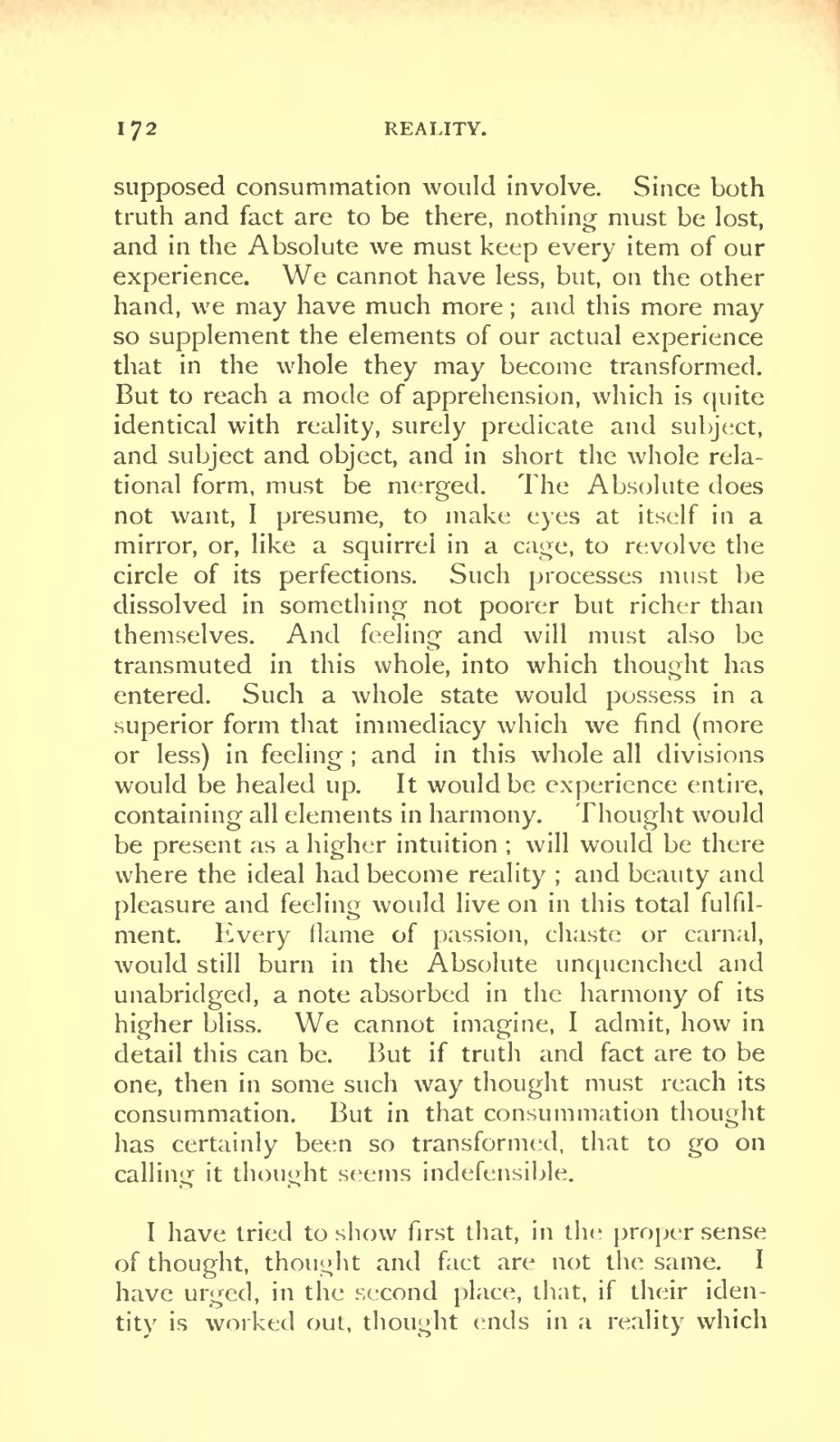supposed consummation would involve. Since both truth and fact are to be there, nothing must be lost, and in the Absolute we must keep every item of our experience. We cannot have less, but, on the other hand, we may have much more; and this more may so supplement the elements of our actual experience that in the whole they may become transformed. But to reach a mode of apprehension, which is quite identical with reality, surely predicate and subject, and subject and object, and in short the whole relational form, must be merged. The Absolute does not want, I presume, to make eyes at itself in a mirror, or, like a squirrel in a cage, to revolve the circle of its perfections. Such processes must be dissolved in something not poorer but richer than themselves. And feeling and will must also be transmuted in this whole, into which thought has entered. Such a whole state would possess in a superior form that immediacy which we find (more or less) in feeling; and in this whole all divisions would be healed up. It would be experience entire, containing all elements in harmony. Thought would be present as a higher intuition; will would be there where the ideal had become reality; and beauty and pleasure and feeling would live on in this total fulfilment. Every flame of passion, chaste or carnal, would still burn in the Absolute unquenched and unabridged, a note absorbed in the harmony of its higher bliss. We cannot imagine, I admit, how in detail this can be. But if truth and fact are to be one, then in some such way thought must reach its consummation. But in that consummation thought has certainly been so transformed, that to go on calling it thought seems indefensible.
I have tried to show first that, in the proper sense of thought, thought and fact are not the same. I have urged, in the second place, that, if their identity is worked out, thought ends in a reality which
